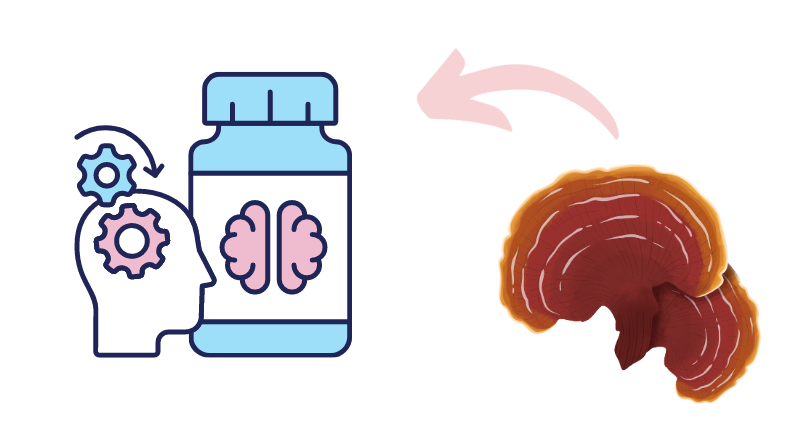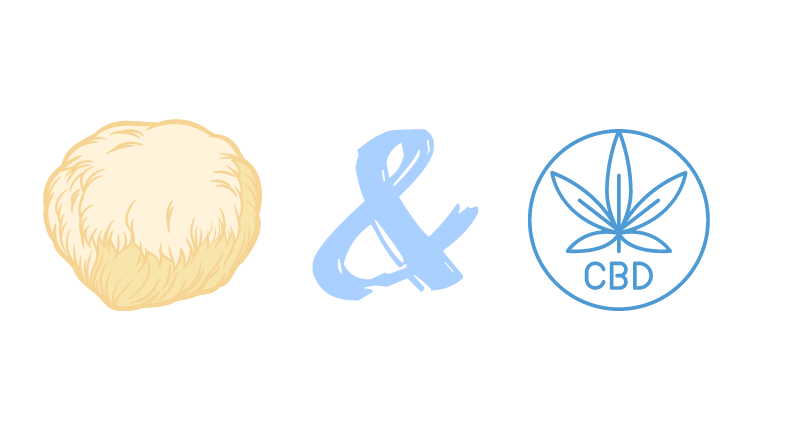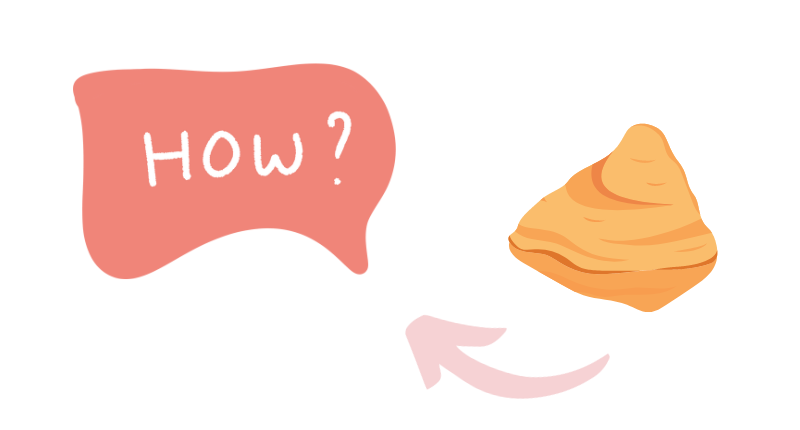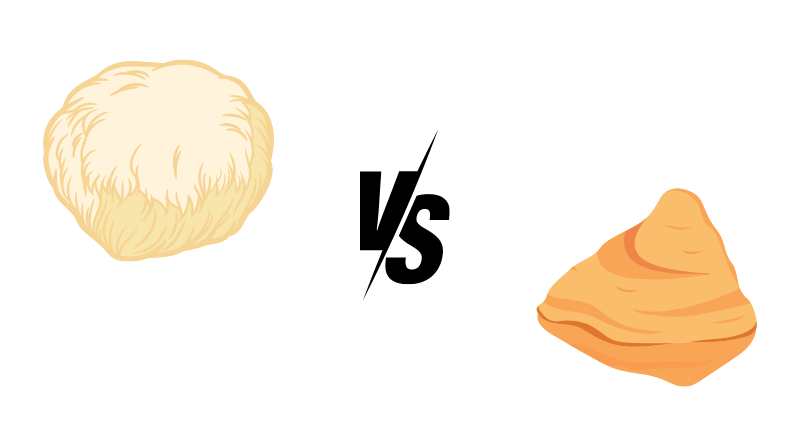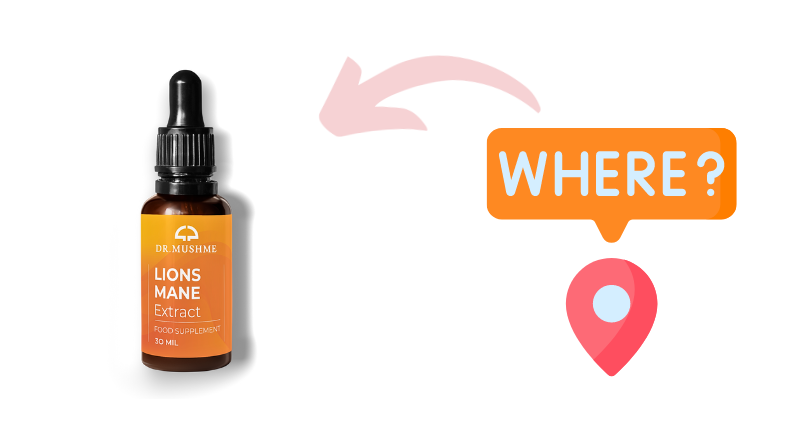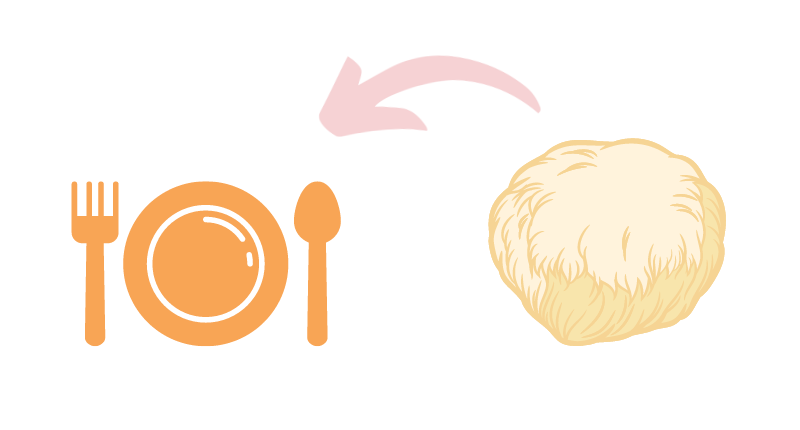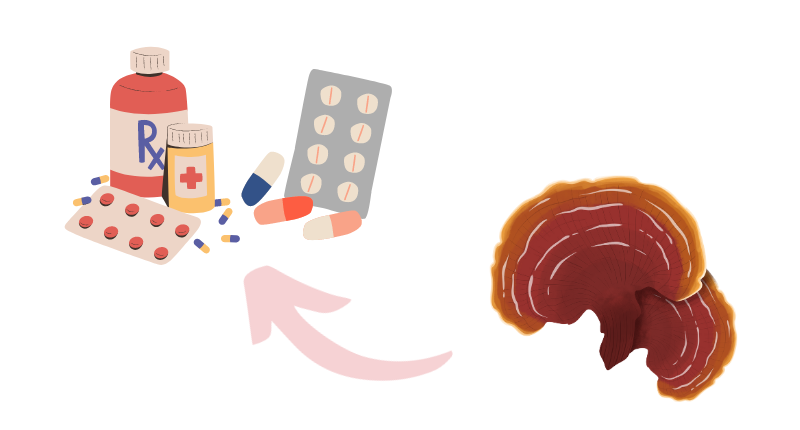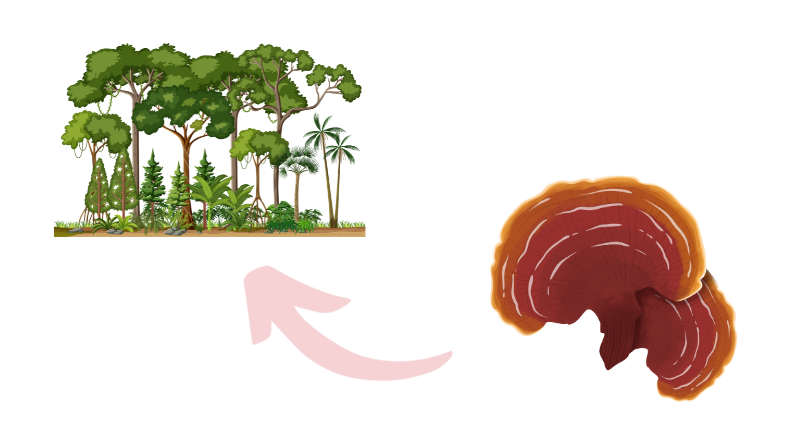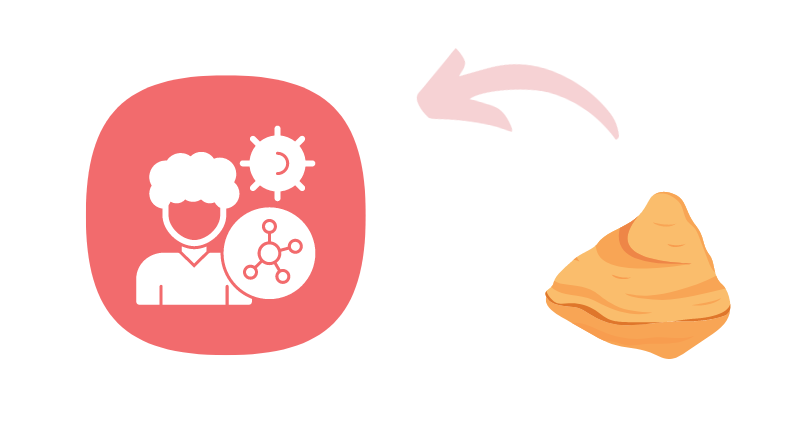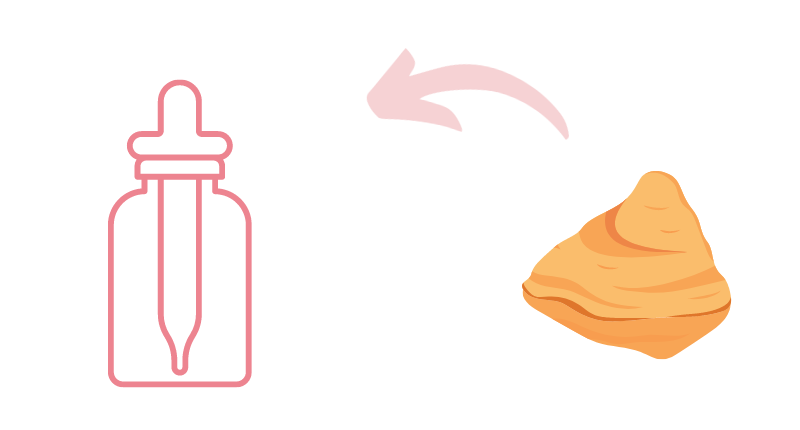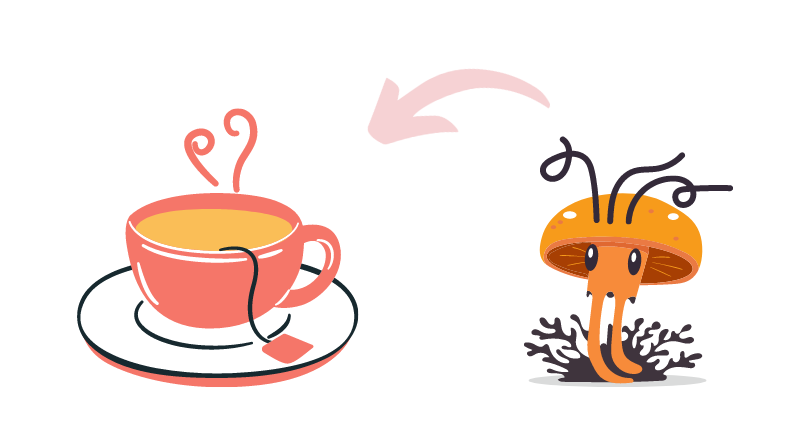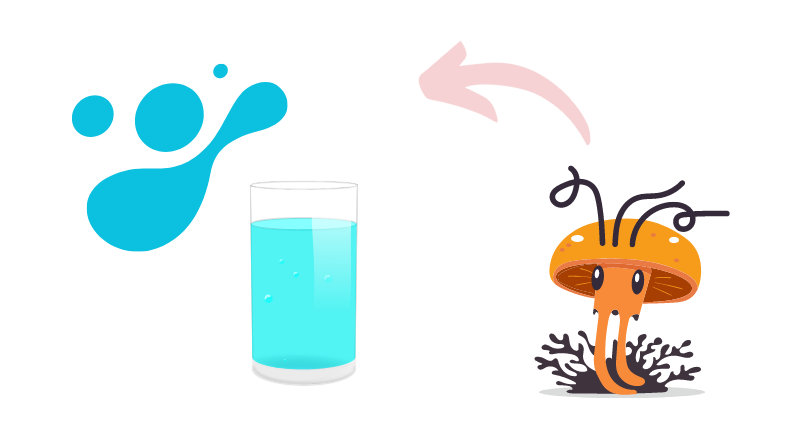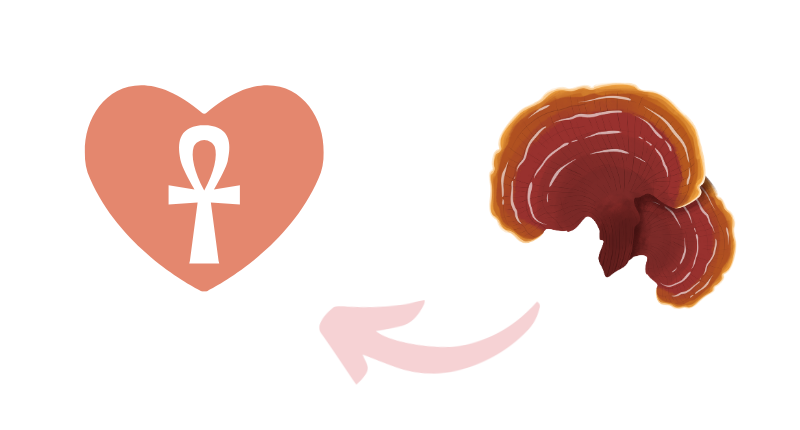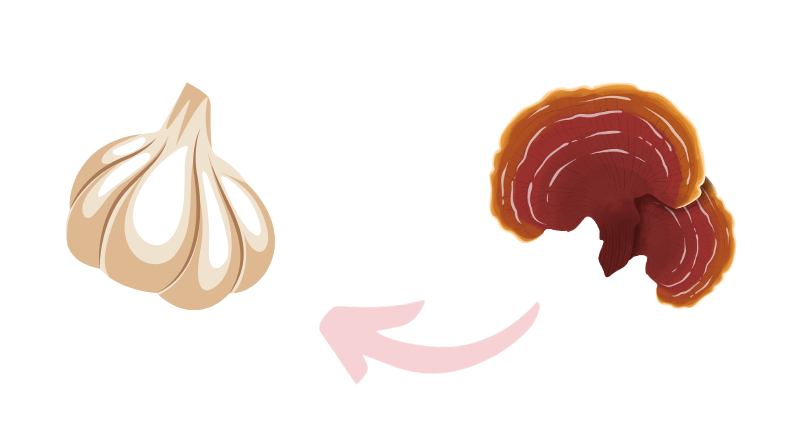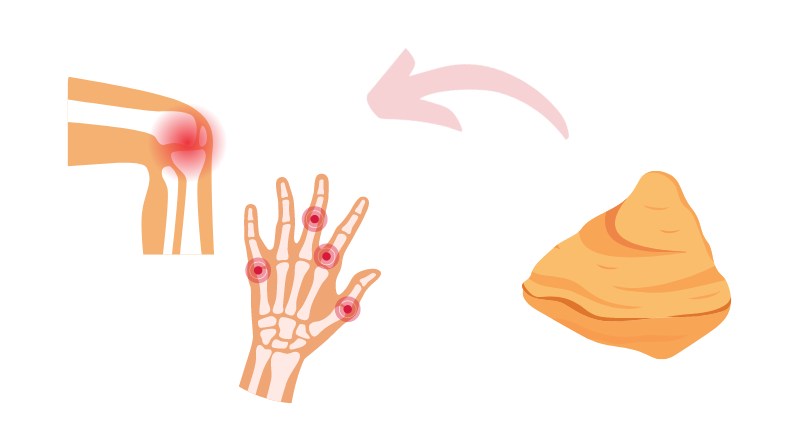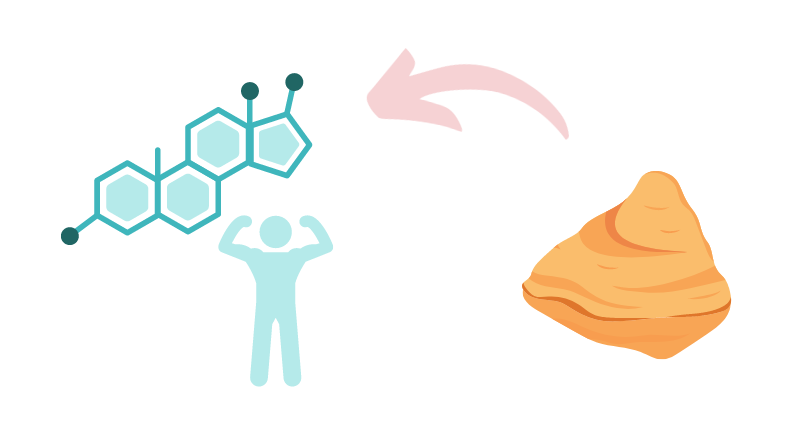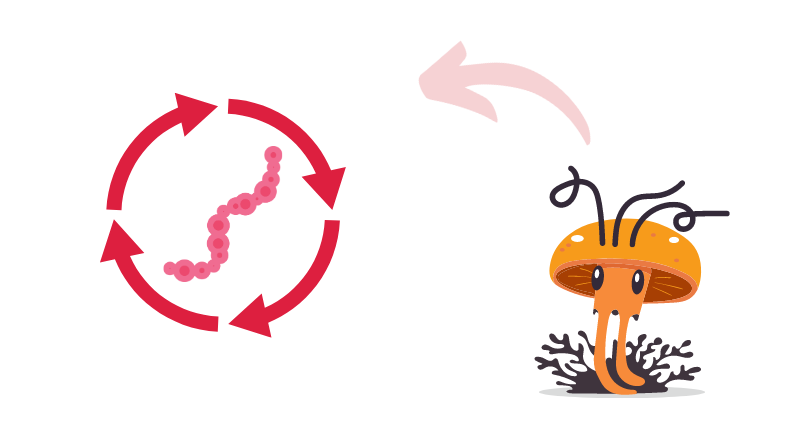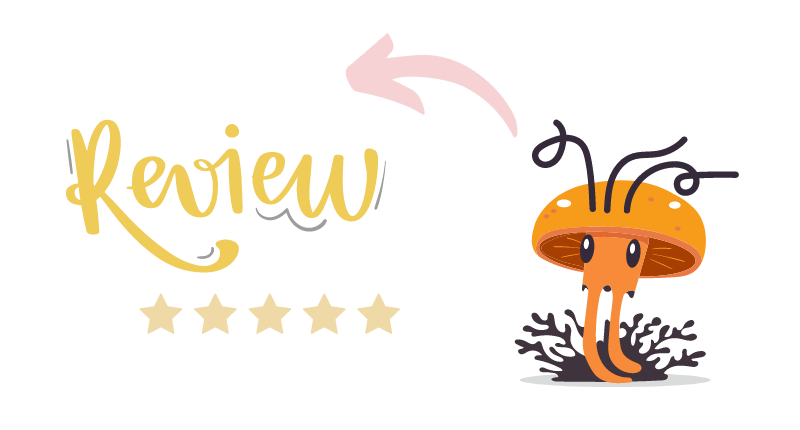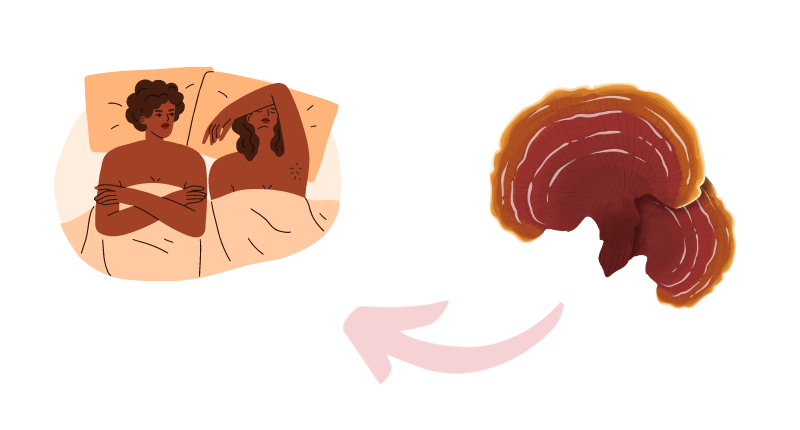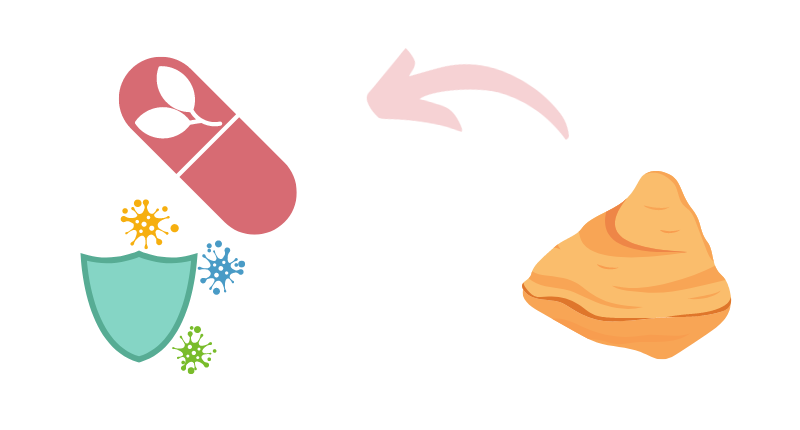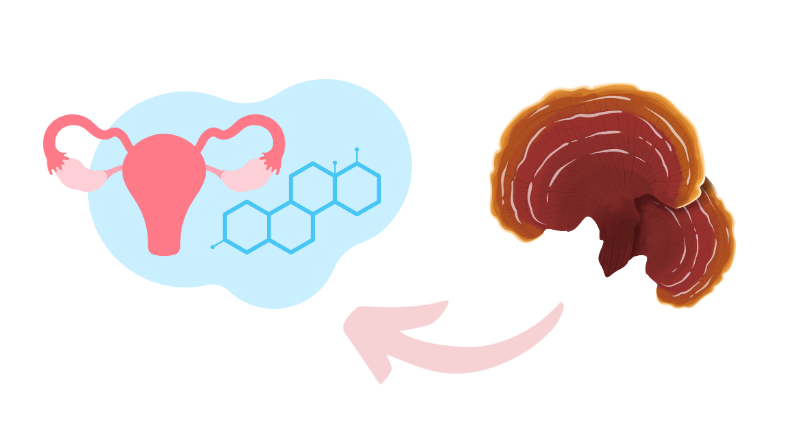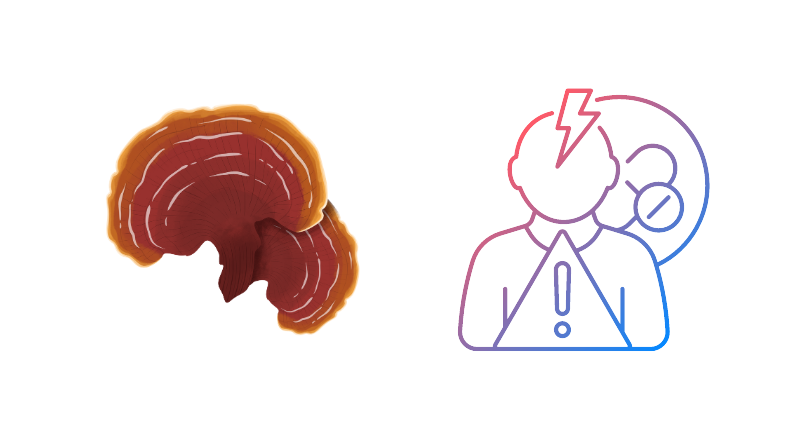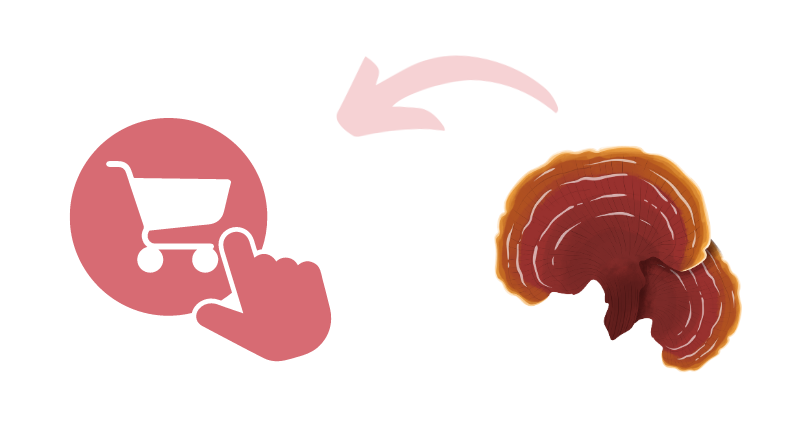Among all the medicinal mushrooms available, Reishi, scientifically-named Ganoderma lucidum, definitely shines as a superstar due to its powerful health effects and long-standing history.
Amidst all the chatter about natural health supplements and nootropics, one common question often seems to linger in people’s minds: are Reishi mushrooms a psychedelic?
This article will cover the nature of Reishi mushrooms, its role as a supplement, and dispel the cultural myths in order to demystify the differences between this so revered nootropic and psychedelic substances.
NOOTROPIC BUT NOT PSYCHEDELIC: ACTIVE COMPOUNDS
Reishi’s major bioactive components are the polysaccharides and triterpenes, which result in it medicinal benefits. None of these bioactive compounds are psychoactive. Therefore, Reishi does not provide the psychedelic physiological effects that one would anticipate from certain other mushroom kingdom members [3].
EFFECTS OF REISHI MUSHROOMS ON THE BRAIN
Reishi is a nootropic, an intellectual drug intensifying cognitive function and clarity of the brain. Psychedelic mushrooms work differently as they heighten perception and consciousness to a greater extent.
The effects of reishi are more subtle, seeming to be an overall enhancer of mental health rather than leading to the accurate kind of dizzying hallucinogenic experiences associated with psychedelics [6].
HOW TO TAKE REISHI SUPPLEMENTS
Reishi can be bought in different forms including capsules, powders, and tinctures. These supplements are prepared to provide the user with the health benefits associable to Reishi, without psychedelic effects. There are pros and cons to each form of supplement, the main one being ‘bioavailability’.
For instance, Dr. Mush Me’s Reishi Drops are a liquid extract version and created via Ultrasonic Assisted Extraction technology. This delivers a very powerful bioavailable product to any user in search of the maximum health benefits from Reishi mushroom.
THE NOOTROPIC POWERHOUSE
The Reishi mushroom may have a storied past entrenched in Asian culture throughout the history of traditional Eastern medicine. Specifically termed as the Mushroom of Immortality, it is claimed to confer restorative powers to youth and health across the centuries.
Its many health benefits have made it internationally famous within Western wellness circles, and a must-have addition to modern natural health regimes [1].
REISHI HEALTH BENEFITS
Reishi mushroom is famous as an excellent friend of an immune system, aid in cancer treatments, as well as a murder of stress.
Scientific research has proven these effects examining bioactive constituents in Reishi such as polysaccharides and triterpenes. These contribute to its immunomodulatory and anti-cancer as well as its properties of being stress-reducing [2; 3].
SAFE & NON-HALLUCINOGENIC
The health and wellness market contains a growing number of supplement offerings which include Ganoderma lucidum in some form. The best way to add a Reishi supplement to your diet is to source a clean, reviewed supplement which comes from raw and organic sources.
MORE READING: WHEN TO TAKE REISHI MUSHROOM
UNDERSTANDING PSYCHEDELICS
The psychedelics are known for the atypical effects which they show on the human mind, in most cases yielding great distortions in perception, mood, and activity of thought processes. Psychedelics, like the constituents in certain Psilocybin mushroom species, act on serotonin receptors present in the brain, hence the mind-altering effects [4].
Reishi mushrooms are unlike those substances in that, they do not contain psychedelic compounds and thus do not inflict effects of hallucinations [5].
LEGAL PERSPECTIVE: NOOTROPIC VS. PSYCHEDELIC MUSHROOMS
Reishi mushrooms are sold legally in many countries, and their consumption is allowed as a dietary supplement since it is provided legal status for the purpose of consumption in the United States. That cannot be said about the so-called psychedelic mushrooms, which have regulated drugs due to substances that they contain and they are called psychoactive ingredients that can be misused.
So, non-psychedelic character of Reishi explains its legal consumption status without posing any threat to public health in relations to unauthorized abuse.
SAFETY & SIDE EFFECTS
Overall, Reishi mushrooms are safe to consume with low side-effects risk. They don’t have hallucinogenic properties as psychedelic mushrooms and aren’t known by radically changing one’s consciousness. Typically it has been used in holistic medicine safely and can be considered as a supplement everyday to take [1].
ADDITION OF REISHI IN A HOLISTIC HEALTH REGIMEN
Reishi easily becomes a part of the daily health regimen, and supports immune system by reducing stress. It supports balance living and general well-being without the psychedelic consequence that follow other types of mushrooms.
Complementary to combine reishi use with other natural supplements Reishi performs good in harmonious synergy with other non-psychedelic natural supplements boosting its health promotion effects. It therefore adds as an adaptable ingredient into a holistic health approach.
CONCLUSION: WELLNESS, NOT INTOXICATION
Therefore, with Reishi mushrooms, one embarks on a journey to better health and wellbeing that is steeped in centuries-old traditional practice, confirmed by modern-day scientific research.
But on the contrary, Reishi provides all the advantages of other magic mushrooms without psychedelic side effects such as hallucinations, visions, or an alternate reality, thus making it quite safe and legal for consumption for those people looking for natural additions to their health.
REFERENCES
- Wachtel-Galor, Sissi, et al. (2011). “Ganoderma lucidum (Lingzhi or Reishi): A Medicinal Mushroom.” In Herbal Medicine: Biomolecular and Clinical Aspects. 2nd edition.
- Lin, Z. B. (2005). “Cellular and molecular mechanisms of immuno-modulation by Ganoderma lucidum.” Journal of Pharmacological Sciences.
- Sanodiya, B.S., et al. (2009). “Ganoderma lucidum: a potent pharmacological macrofungus.” Current Pharmaceutical Biotechnology.
- Nichols, D.E. (2016). “Psychedelics.” Pharmacological Reviews.
- Passie, Torsten et al. (2002). “The pharmacology of psilocybin.” Addiction Biology.
- Cui, X. Y., et al. (2012). “Extract of Ganoderma lucidum prolongs sleep time in rats.” Journal of Ethnopharmacology.

